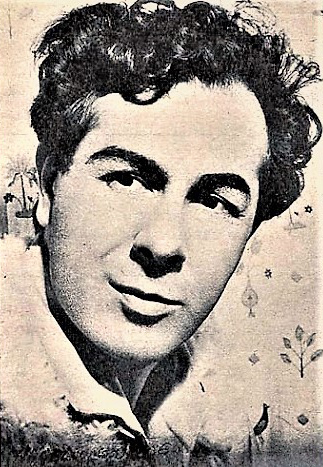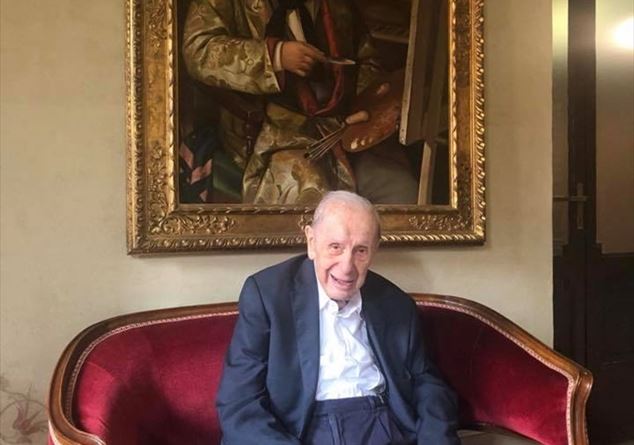Angelo Loforese
27 March 1920 Milano – 14 May 2020 Milano
In RA format
|
Angelo Loforese singing at the tender age of 92 (December 2012). You couldn't call that beautiful, but his high C is still
way more secure than Beczała's.
|
In RA format
In RA format
In RA format
Loforese (officially Lo Forese) took voice lessons from 1938 on, but in 1941 had to join
the Fascist Italian army. In 1943, he deserted and fled to Switzerland; obviously, all that interrupted his studies.
Returning after the war, he resumed them with Primo Montanari, and started his
career in 1948 as a baritone. Not for long: already in 1950, he decided to switch to tenor, took lessons with Emilio
Ghirardini (and later with Aureliano Pertile), and made his second debut,
according to most sources, in 1952 as Manrico at the Teatro Nuovo in Milano; another version says in 1950 or 1951 in
Casablanca, again as Manrico. Anyway, Manrico was to remain his favorite role.
His career carried him to many important Italian theaters (La Scala, Rome, Bologna, Maggio musicale, Trieste), often to
France (Aix-en-Provence, Marseille), to Monte Carlo, Belgium (Brussels, Gent, Antwerp), Germany (Deutsche Oper Berlin,
Stuttgart, Hamburg, Düsseldorf), the Vienna Staatsoper, Buenos Aires (Teatro Colón), Athens, Lisbon, Zürich,
Johannesburg, Belgrade, the Wexford Festival, the Théâtre de la Monnaie, Rio de Janeiro, Helsinki, Budapest...
His repertory ranged from Nemorino to Otello, his best roles were Puccini's des Grieux, Loris, Turiddu, Canio, Zandonai's
Romeo, Aligi (La figlia di Iorio by Franchetti) and Don José.
He was, however, never considered a first-rate tenor; much of his career was built upon readily jumping in for sick
colleagues.
What really singled him out, though, was that he never lost his voice, not even decades after having retired, which made him
kind of a celebrity in his old age. Still at more than 90 years old, he would step (very slowly) on a concert podium every
now and then, and sing an aria or two, usually Di quella pira in pitch, with very secure high Cs.
At age 96, he moved into the Casa di Riposo Verdi, where he passed away peacefully two months after his 100th birthday.
Reference 1, reference 2, reference 3: Kutsch & Riemens
Picture source 1 (young) and 2 (old)
I wish to thank Tom Silverbörg for the recording (Huguenots).
I wish to thank Albert Scerri for the recording (Fedora).
|

